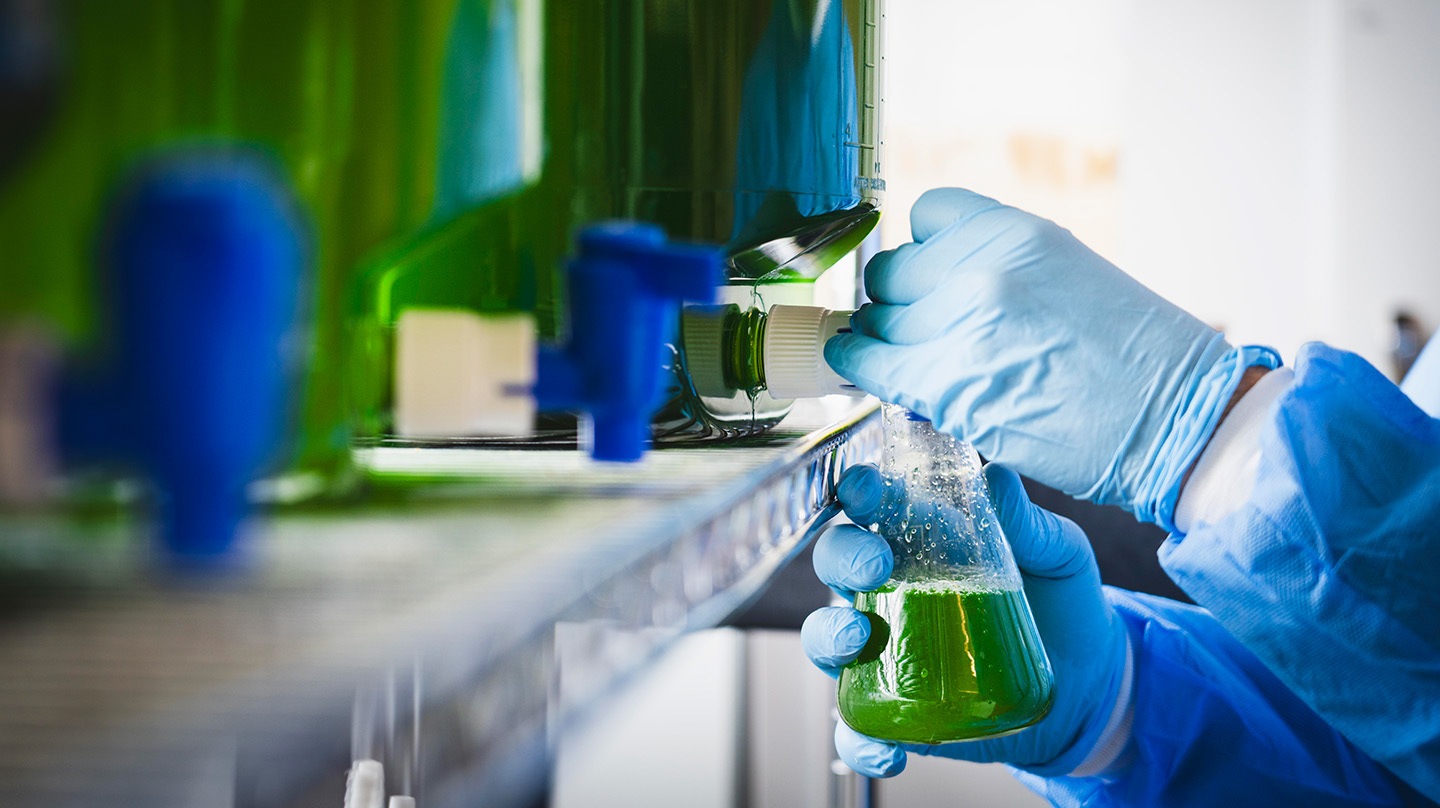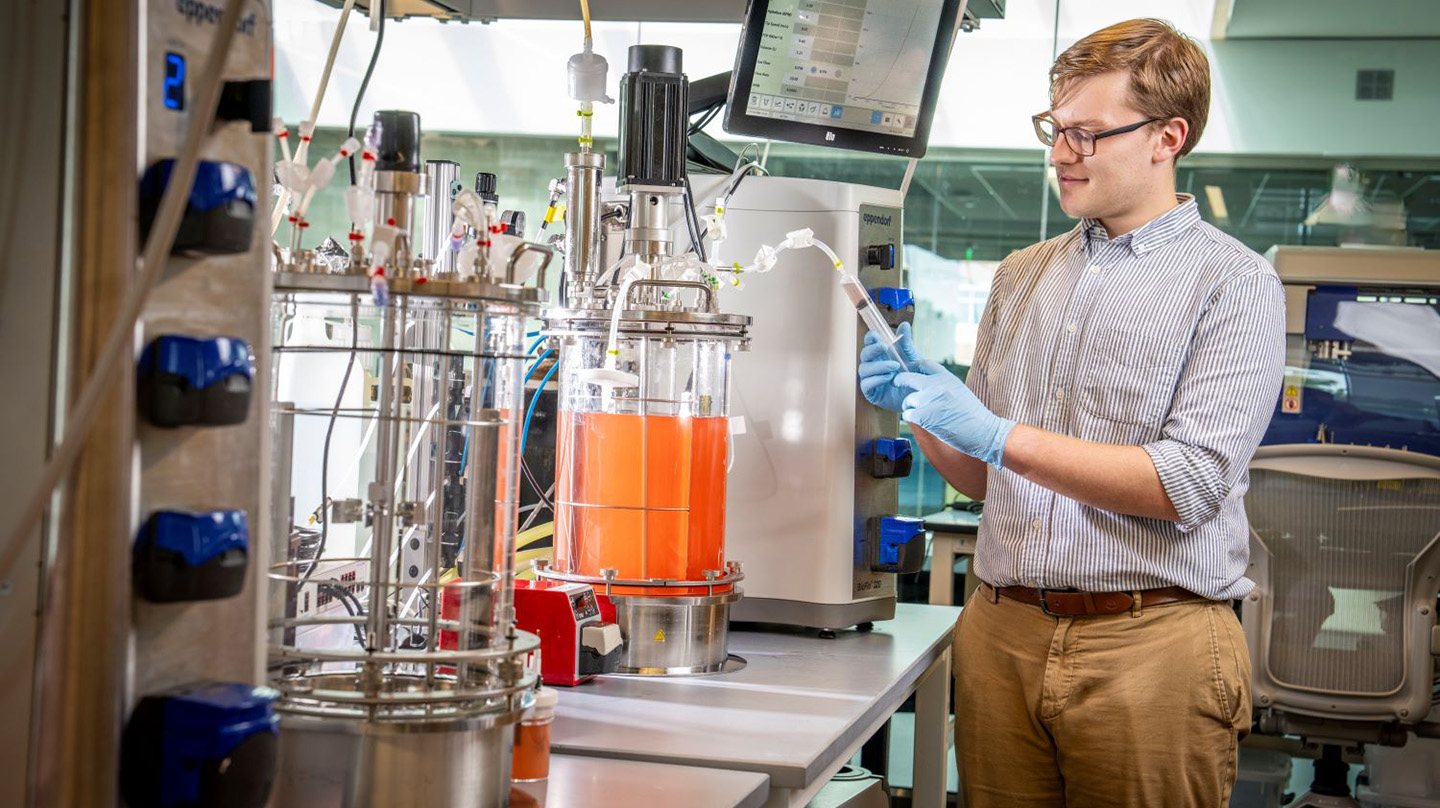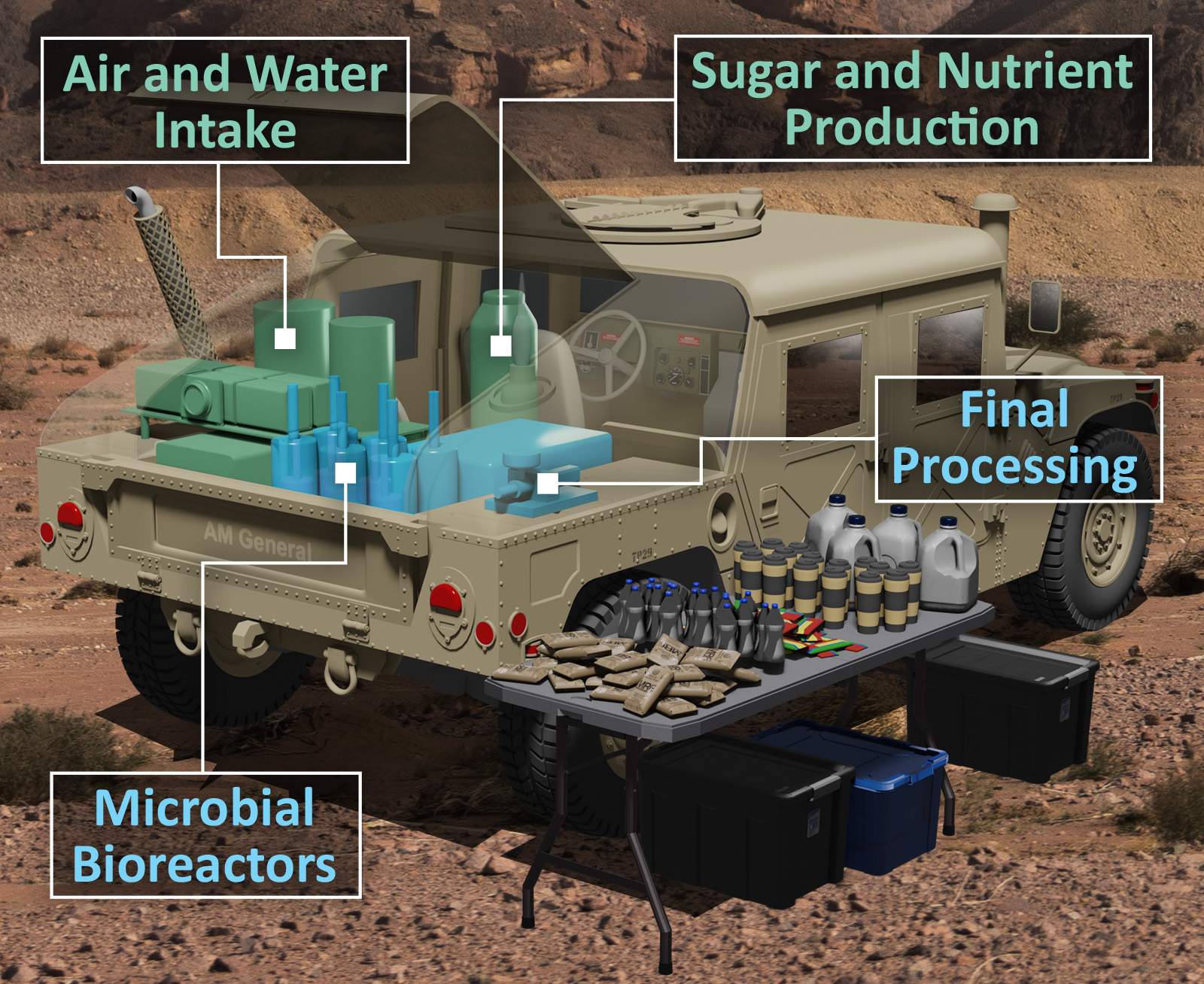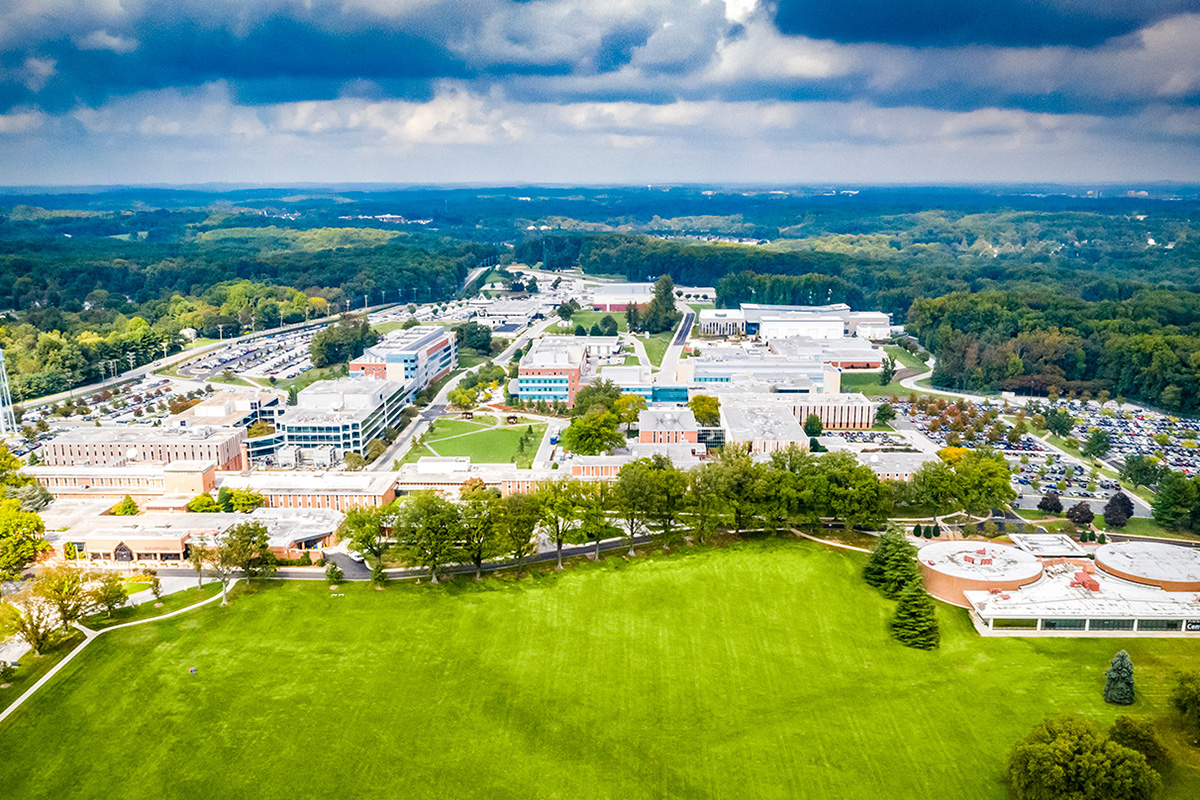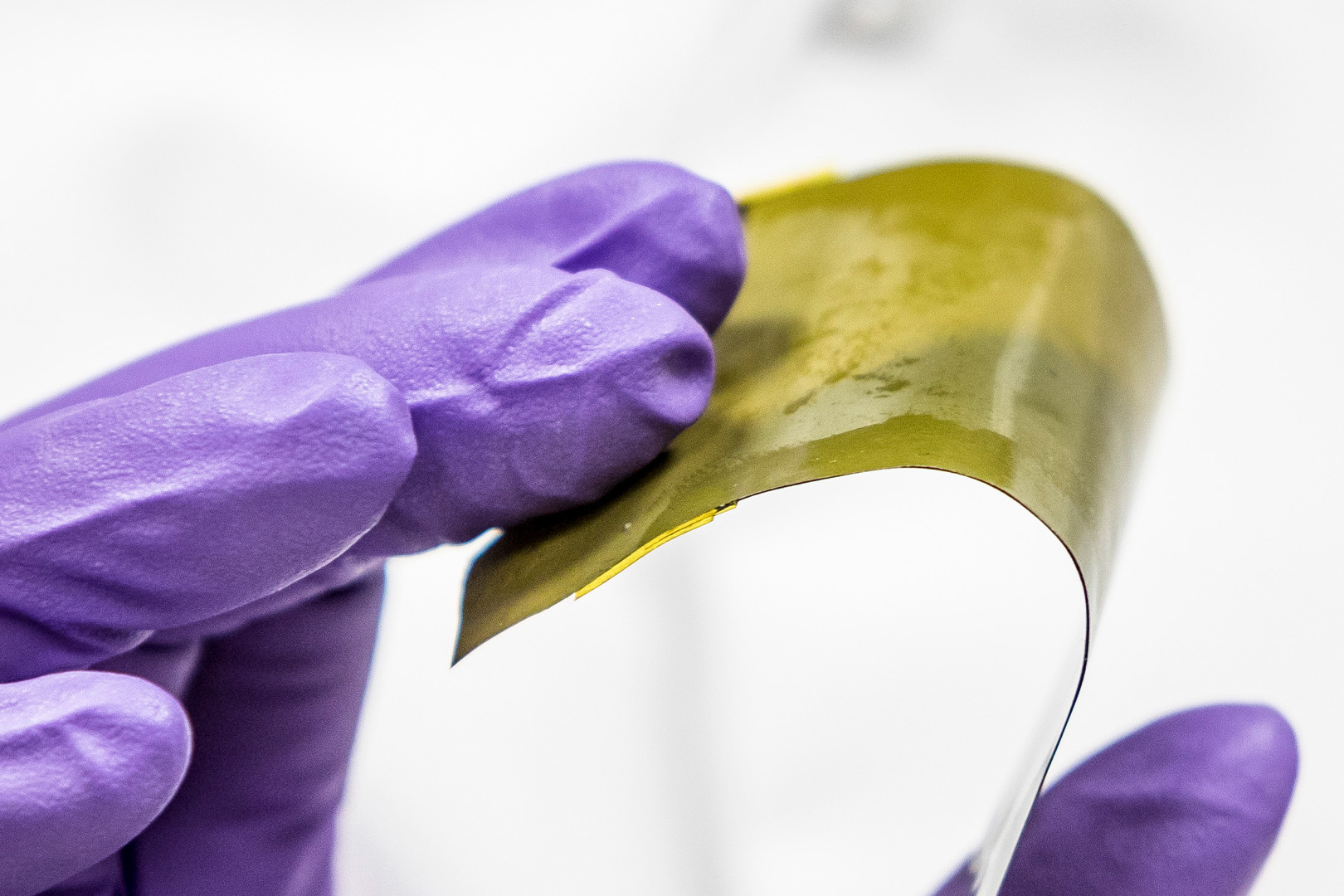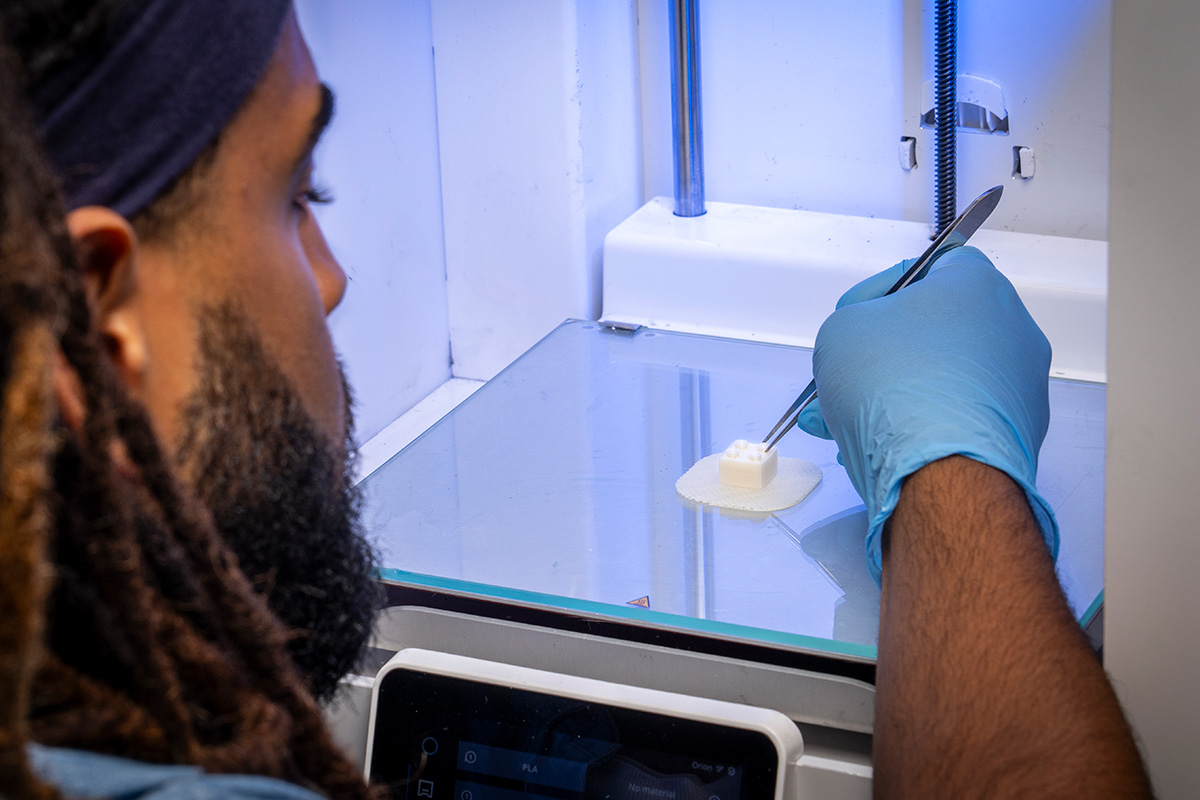
Biomanufacturing
Biomanufacturing Solutions for National Security
Biomanufacturing—the use of microbial organisms to make useful materials and molecules—can help solve important national security challenges facing the United States, including making supply chains more secure, strengthening the defense industrial base, and producing materials for warfighters wherever and whenever they need them.
Researchers at APL are combining their technical expertise, creativity, and national security acumen to put biomanufacturing to work, developing tangible solutions to solve these national challenges.
